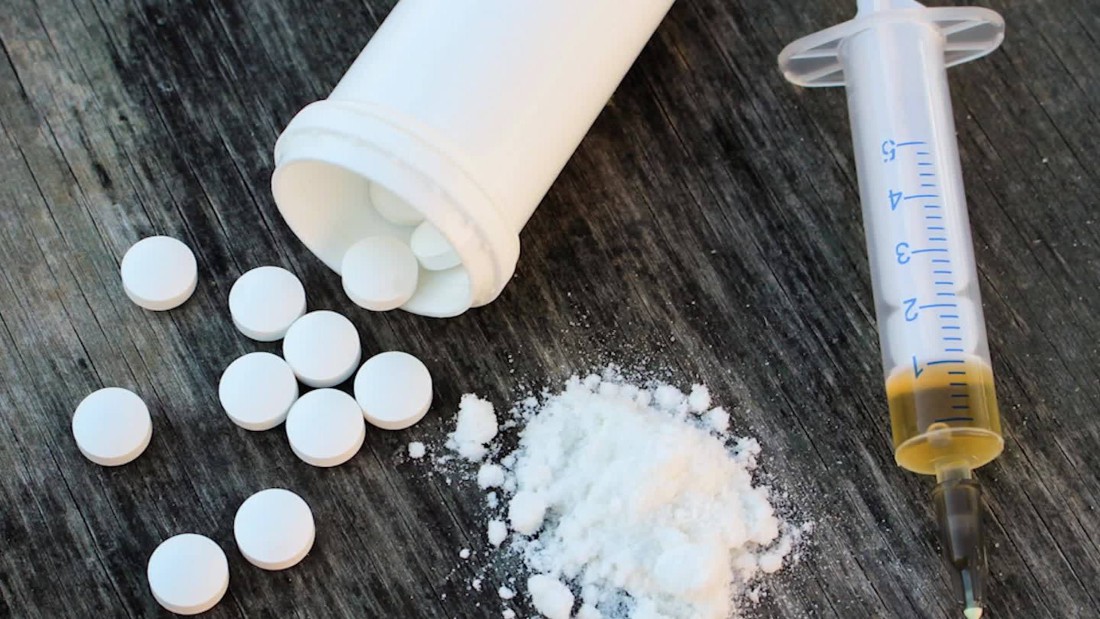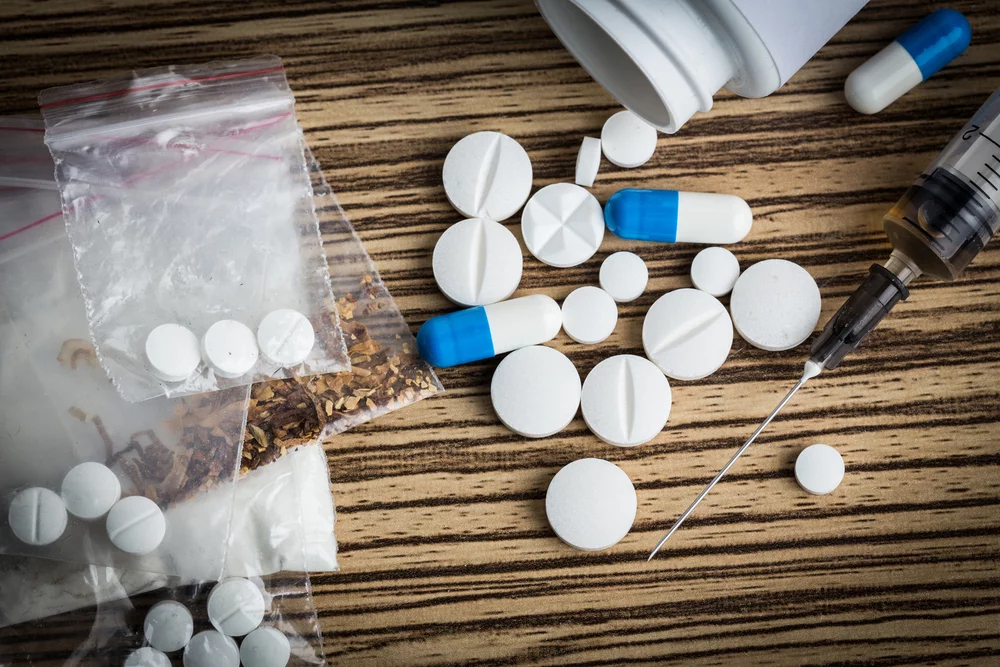You are aware of the opioid epidemic, and you’ve heard about fentanyl – is it really that different from all the others? Getting to know the unique risks around fentanyl is crucial in keeping you and your loved ones safe.
Fentanyl is currently the leading cause of death for Americans ages 18-45 years old, though many who overdose aren’t even aware they are taking it!. Incredibly potent and with a high potential for addiction, this synthetic opioid can be up to fifty times stronger than heroin (remove link), and a hundred times stronger than morphine. Drug overdoses have quadrupled since 1999, and over 70% of these deaths are related to opioids like fentanyl.
The potential for fentanyl in all types of substances, including “prescriptions” purchased online, underscores the need for awareness around this powerful opioid. If you or someone you love is using drugs—any type of drug—you should know about the dangers of fentanyl.
What is Fentanyl?
When prescribed and administered under medical supervision, the synthetic opioid fentanyl is used to treat severe pain, such as in patients with advanced forms of cancer. Like most opioids, fentanyl induces a state of extreme relaxation and sedation, euphoria, and disassociation, as well as pain relief. Often administered through dermal patches or lozenges to slow the release of this potent drug, these legal forms of Fentanyl may be diverted and sold for illegal use.
There is a misconception that abuse of prescription drugs like fentanyl is safer because these drugs are legal when used for medical purposes. However, because fentanyl is specifically designed to treat extreme pain, often for patients where other opioids may not be effective, the potency of this synthetic opioid can easily lead to overdose when used outside of careful medical attention.
Why Fentanyl is Often a Hidden Danger
Fentanyl is also manufactured illegally, typically in powdered form, but also in liquid, patches or blotter paper. Because it takes very little of the drug to produce a powerful high, it is often mixed with other drugs including heroin, methamphetamine, and cocaine in order to lessen the cost of production and net more profits for dealers. In some cases, it is pressed into pills and passed off as other prescription opioids such as oxycodone and hydrocodone, and even such as Xanax.
This means that while people may believe they know what they are taking, it is increasingly possible that the drug they have purchased contains a potentially lethal amount of fentanyl. Additionally, combining drugs greatly increases the risk of adverse and unpredictable effects, including overdose.
Signs of a Fentanyl Overdose
If you or someone you love has overdosed on fentanyl, it is critical to identify the problem and seek help as quickly as possible. Fentanyl is a respiratory depressant that can slow breathing to a dangerous level, or even completely stop it. Signs of an overdose include:
- Slow, shallow breathing
- Small, “pinpoint” pupils
- Inability to stay awake, unconsciousness
- Limp body, fatigue
- Cold or clammy skin
- Choking or gurgling
- Blue-coloured lips or fingernails
What to Do in Case of an Overdose
In case of an overdose, you should immediately call an ambulance, and administer naloxone if it is readily available. Naloxone is a fast-acting nasal spray that blocks the effects of opioids. It is easy to use, and administering naloxone does not require medical training.
If naloxone is not immediately available, try to keep the person awake and talking. If they are unconscious, roll them onto their side to prevent choking, and stay with them until emergency help arrives.
How Does A Person Recover From Fentanyl Addiction?
Opioids are extremely addictive, both psychologically and physically. A fentanyl addiction necessitates professional care, first to safely detox, and then to begin to recover from the addiction.
What Happens When You Detox from Fentanyl?
Attempting to detox alone or go “cold turkey” from any opioid can result in serious and potentially life-threatening side effects. For people struggling with a fentanyl addiction, consulting with a medical professional about how to begin this process is an essential step in safely transitioning into recovery.
Under the care of a medical professional, withdrawal will be closely monitored, and support will be given to ease the discomfort of any resulting symptoms, which may include things like:
- Nausea, diarrhea and vomiting
- Muscle pain and cramping
- Insomnia
- Elevated heart, blood pressure and respiration rates
- Runny nose
- Feeling weak
- Chills
- Sweating
After Detox, What is Treatment for Fentanyl Addiction Like?
Once you have gone through detox, you will begin the process of rebuilding your life free from addiction. To do this, you will work with addiction specialists who are trained specifically in helping you regain your health and establish new patterns and ways of thinking in order to break free of the cycle of dependency.
This can include treatment modalities like:
- Cognitive behavioural therapy (CBT)—a method of therapy often used for those looking to overcome addiction, CBT identifies and explores the root causes of addiction, problematic patterns of thought and behaviour, and ways in which to constructively address and shift these patterns
- Wellness practices—from yoga to jogging to mindfulness meditation, wellness practices help to strengthen the body and provide a healthy outlet for stress and tension
- Group therapy—surrounded by people who are going through a similar experience and are in different stages of recovery, you’ll be listened to and advised by a supportive, knowledgeable community
If you or your loved one is facing a problem with fentanyl abuse or any form of addiction, now is the time to get help and start living a better life.
Freeing Yourself from Fentanyl at The Dawn

The Dawn Wellness Centre and Rehab offers opiate rehab in Thailand in an environment that fosters healing and growth for those looking to recover from substance use or mental health disorders. At The Dawn, we offer a Signature Addiction Treatment Programme for individuals struggling with substance addiction, behavioural addictions and co-occurring disorders.
Our primary objective is for clients to achieve and maintain long-term recovery by understanding the root causes of their disorder, and equipping each individual with a personalised set of coping tools to use when dealing with life’s challenges. Our highly-experienced Western clinical team works closely with each client to develop a customised treatment plan based on their specific needs and goals.
24-hour Medical Support and On-site Detox
The Dawn offers medically-assisted detox for our clients. Our round-the-clock on-site professional nursing team carefully monitors clients throughout this process under the supervision of our psychiatrist, who can prescribe medication as necessary to ease withdrawal symptoms. For emergency cases, clients will be immediately admitted to a nearby hospital for further treatment and support.
Options for Long-Term Rehab
Most clients who choose The Dawn opt to participate in long-term rehab that focuses on in-depth mental health treatment and further guidance through the continuum of care. This includes detox, addiction and mental health treatment, a step-down programme, and an aftercare plan. Instead of spending four weeks in treatment and then heading home, this rehab model is generally eight weeks, and is flexible, all-inclusive and can be extended based on the unique needs of the client.
Our staff at The Dawn has many years of experience successfully treating people with substance use disorder. Call us today to learn more about how we can help you overcome fentanyl addiction and regain control of your life.
Related Posts
 Synthetic Fentanyl: The Most Dangerous Opioids That’s 10x Deadlier Than Heroin
Opioid addiction has become an epidemic that appears only to be getting worse. One factor that contributes to the increasing opioid crisis is the new forms of drugs that make their way...
Synthetic Fentanyl: The Most Dangerous Opioids That’s 10x Deadlier Than Heroin
Opioid addiction has become an epidemic that appears only to be getting worse. One factor that contributes to the increasing opioid crisis is the new forms of drugs that make their way...
 What You Need to Know About Opioid Withdrawal Symptoms, Detox and Treatment
Opioid addiction is becoming a global problem and is currently the primary cause of drug overdose in the U.S. Opioids such as morphine and codeine are synthetic drugs that cause the...
What You Need to Know About Opioid Withdrawal Symptoms, Detox and Treatment
Opioid addiction is becoming a global problem and is currently the primary cause of drug overdose in the U.S. Opioids such as morphine and codeine are synthetic drugs that cause the...
 Opioid Addiction and Chronic Pain: Understanding the Risks and Alternatives
For years, opioids have been at the forefront of treating pain. However, the effectiveness of opioids over a long period is being debated, particularly given the high risk for addiction....
Opioid Addiction and Chronic Pain: Understanding the Risks and Alternatives
For years, opioids have been at the forefront of treating pain. However, the effectiveness of opioids over a long period is being debated, particularly given the high risk for addiction....
 Too Much to Take: Warning Signs of Drug Overdose
The possibility of overdose is a harsh reality for those dealing with drug addiction. Knowing the specific signs of an opioid, benzo, alcohol, or stimulant overdose can save a life....
Too Much to Take: Warning Signs of Drug Overdose
The possibility of overdose is a harsh reality for those dealing with drug addiction. Knowing the specific signs of an opioid, benzo, alcohol, or stimulant overdose can save a life....





